What Does the Piano Playing
Whether you grew up in a musical family unit, encouraged to practice endless hours before recitals like I did, or whether you claim the littlest musicality of anyone you lot know, at that place are unquestionable benefits to playing musical instruments, specially piano. Furthermore, studies show it is truly never besides late to start learning piano – the mental and concrete benefits apply to all ages.
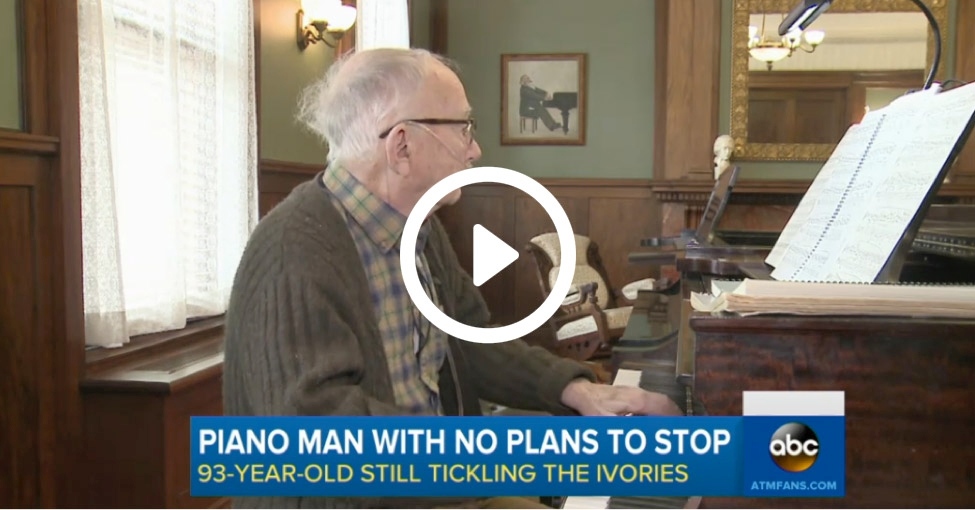
Source: ABC News
At Lindeblad, a love for music underlies everything we do. Nosotros fully recognize the multifaceted benefits of learning a musical instrument, peculiarly pianoforte. To assist make the case for learning to play piano, we've outlined many of the cognitive benefits which are supported by several groundbreaking studies and enquiry.
15 Benefits of Learning to Play Piano
1. Prevents Brain Processing, Hearing and Retention Loss
The ability to procedure auditory signals normally slows down equally we age. However, participants of a recent written report who connected to play music throughout their lives had helped reverse the decline of brain processing, memory and inner ear hearing loss.
Source: ABC News
2. Improved Counting & Math Skills
A study conducted by Martin F. Gardiner and his colleagues at the Center for the Study of Human Development at Chocolate-brown University found that specialized musical training in specific increments toward greater difficulty boosted 2nd graders' math skills significantly above their peers.
Source: Brain Connection Education Calendar week
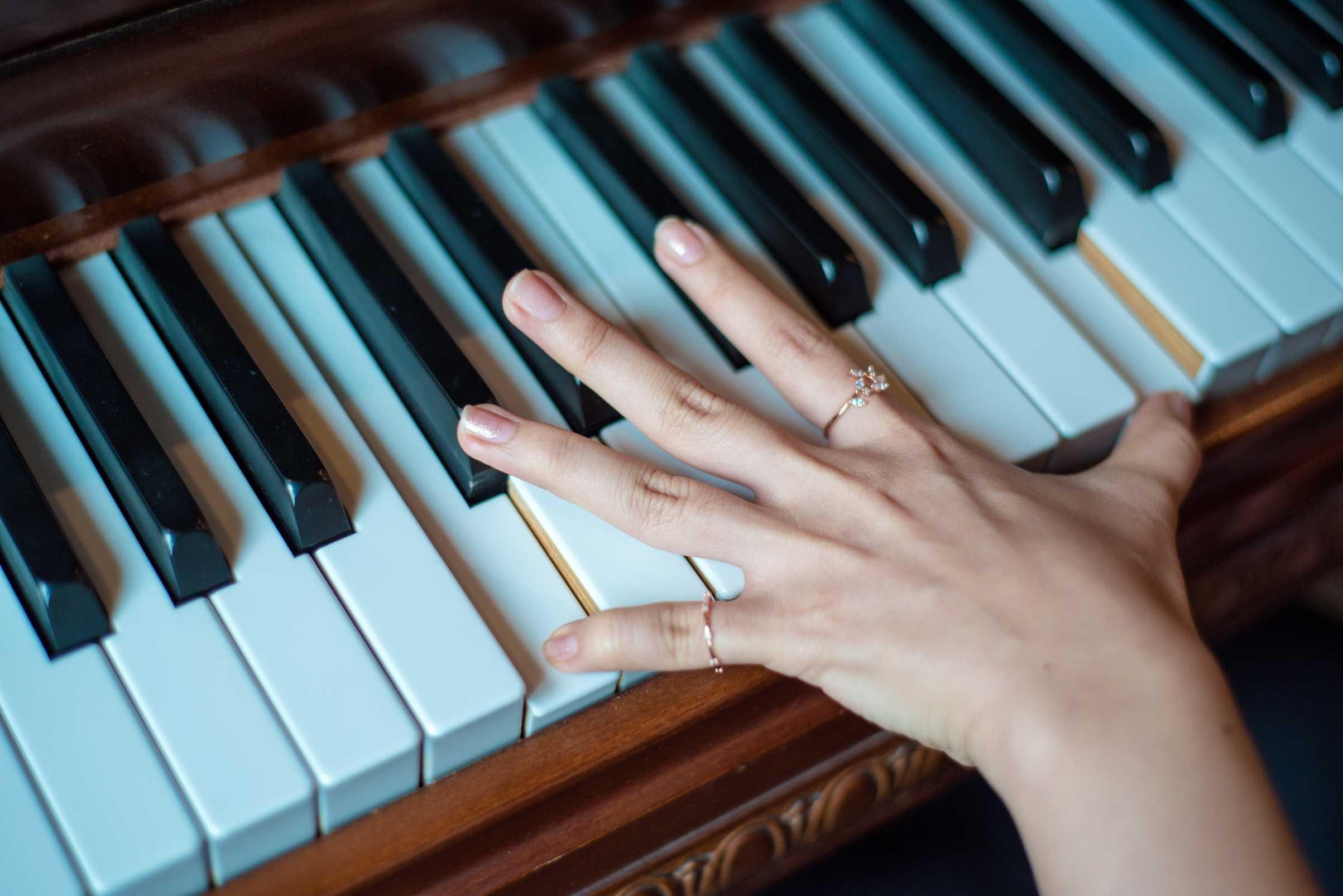
iii. Exercising New Language Skills
A study in the early 1990s discovered the "Mozart outcome" in children, which showed early language development and spatial-temporal intelligence could be additional by keyboard lessons for preschoolers.2 Additionally, a report by Dr. Charles Limb showed that pianists who solo use their brains linguistically as if they were responding conversationally and grammatically.
Source: Brain Connection & SciePub & Huffington Post
four. Improves Reading Comprehension
A 1993 study summarized in the Educational Psychology journal showed that the ability to discriminate betwixt pitch, which is a cardinal ability you acquire when playing piano, was linked to good reading operation. Additionally, learning to memorize music before operation exercises reading comprehension skills and the portion of your brain responsible for call up.
Source: Brain Connection & Musician Encephalon
five. Encourages Creativity
Dr. Ana Pinho conducted a recent study on jazz pianists. Monitoring their brain activeness while playing, she establish that the function of their encephalon responsible for default or stereotypical responses was actually turned off. Instead, when jazz pianists are playing, their brains improvisation ability is firing to create unique, original sound and style.
Source: Mic & NCBI
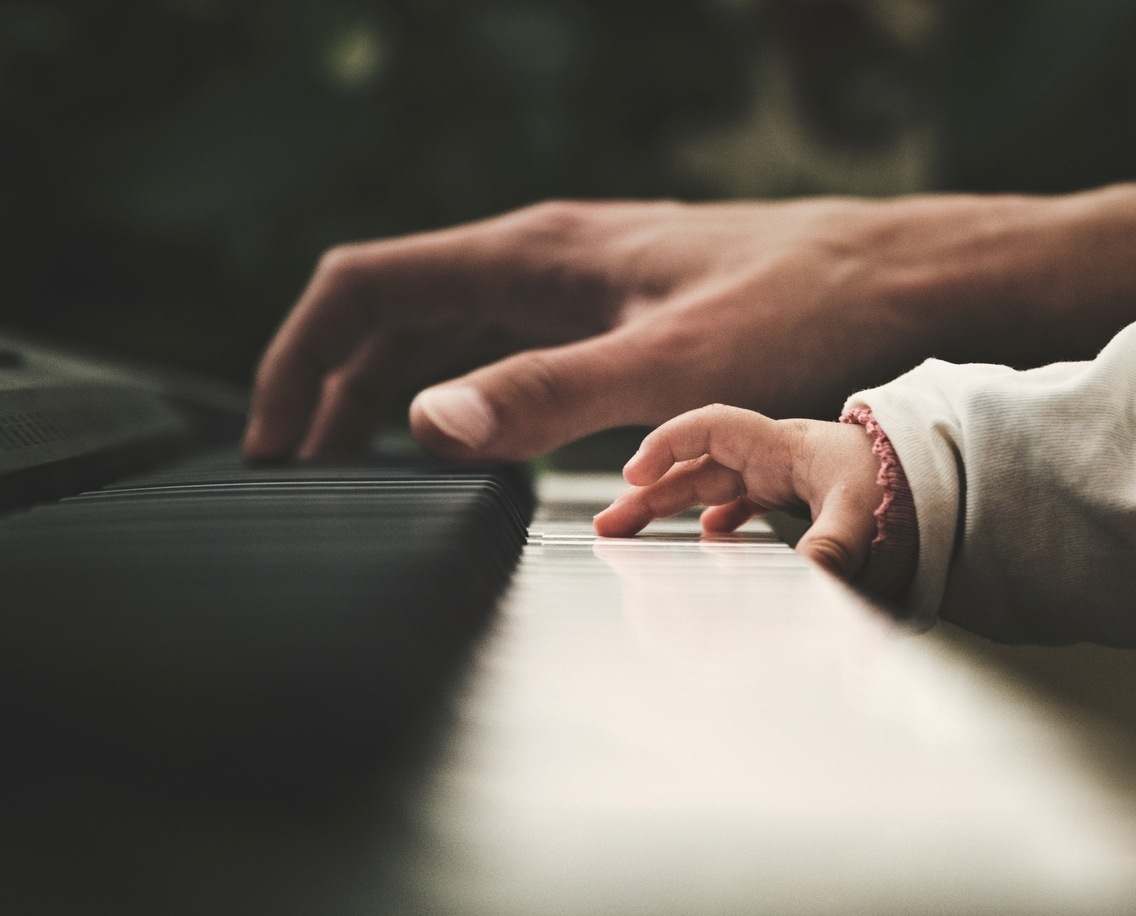
6. Practice with Time Management & Organization
As with any responsibility or hobby, learning to add it to your daily routine and make time to practice it requires good time management. Playing piano and other instruments that demand a routine practice schedule are peculiarly effective in challenging one's ability to manage and organize their time. For children, learning to play piano, juggling lessons, exercise and fun play, is a smashing way to teach these lifelong skills.
Source: Ezine Articles
7. Requires Concentration, Field of study & Patience
Multiple areas of the brain low-cal up when playing music. Scientists studying the brains of musicians every bit they play music take found that the discipline of playing music is the equivalent of a full-torso brain workout. Strengthening multiple areas of the encephalon, including our ability to concentrate, focus and apply knowledge, playing music allows us to exercise our brain similarly in other areas. Then, it should not be surprising that starting to play piano will trigger increased patience, concentration and discipline in other areas of your life.
Source: TED
eight. Strengthens Hand Muscles & Hand-Eye Coordination
Information technology is no surprise that learning to play piano requires hand-center coordination, but a recent study on hand motor command in musicians suggests that piano performers have actually changed the cortical mapping to increase finger speeds. For children and adults with reduced motor skills, learning to play the piano can challenge these encephalon connections to motor movement and even strengthen coordination.
Source: Music and Wellness
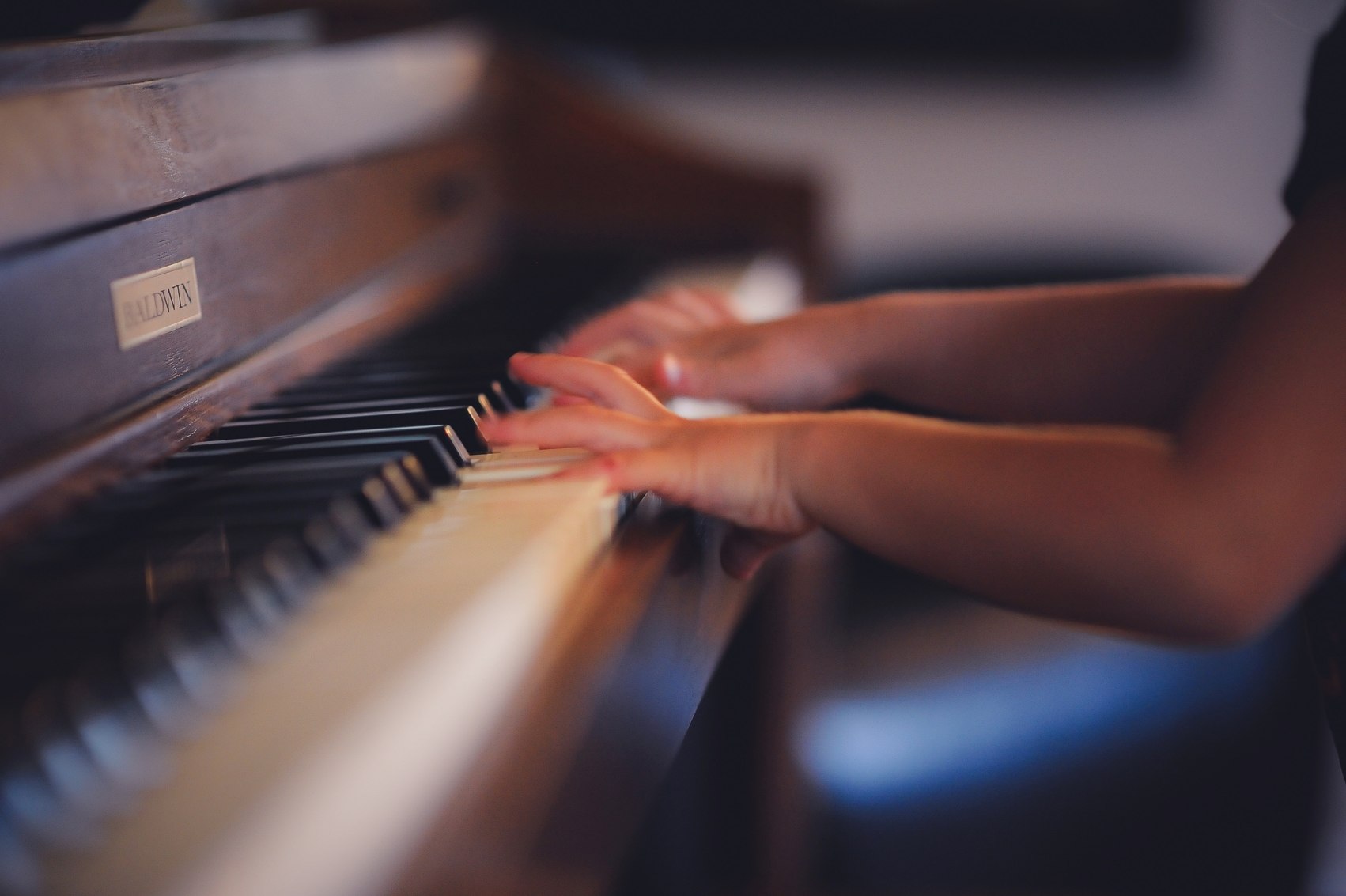
9. Improves Rhythm & Coordination
Learning rhythm is essential to mastering pianoforte, but it also has been shown to take a positive effect on reading skills in children. According to the academic periodical, Psychology of Music, "Children exposed to a multi-year program of music tuition involving training in increasingly circuitous rhythmic, tonal, and applied skills display superior cognitive functioning in reading skills compared with their not-musically trained peers."
Source: Science Daily
10. Boosts Self-Esteem
In a 2014 report of 4th-course students in public school in Canada, children who received individual pianoforte lessons for 3 years tested higher on self-esteem measures and school music achievement tests. Learning to play piano and experiencing the excitement of mastery after learning a piece of music is an incredibly powerful way to boost ane'due south confidence.
Source: Sage Pub Journals
eleven. Expands Cultural Knowledge
In a 2016 report of Amazonian women and men, musical preference was found to exist strictly cultural and not hardwired into our brains. Counter to by assumptions near our brains' preferences of dissonant versus consonant chords, the study's findings back up learning to play piano as one way to expand our cultural knowledge of unlike sounds, styles and types of music. Specially for children, this exposure is disquisitional to encouraging early open mindedness and cultural diversity.
Source: Science Daily
12. Reduces Stress & Anxiety
A 2013 article published by the National Library of Medicine found that piano do tin really assist treat depression and alleviate stress in elderly adults. Despite the studied demographic being older adults, these findings are encouraging of all ages that piano exercise can serve equally a holistic and natural treatment for depression and mood disorders.
Source: NCBI
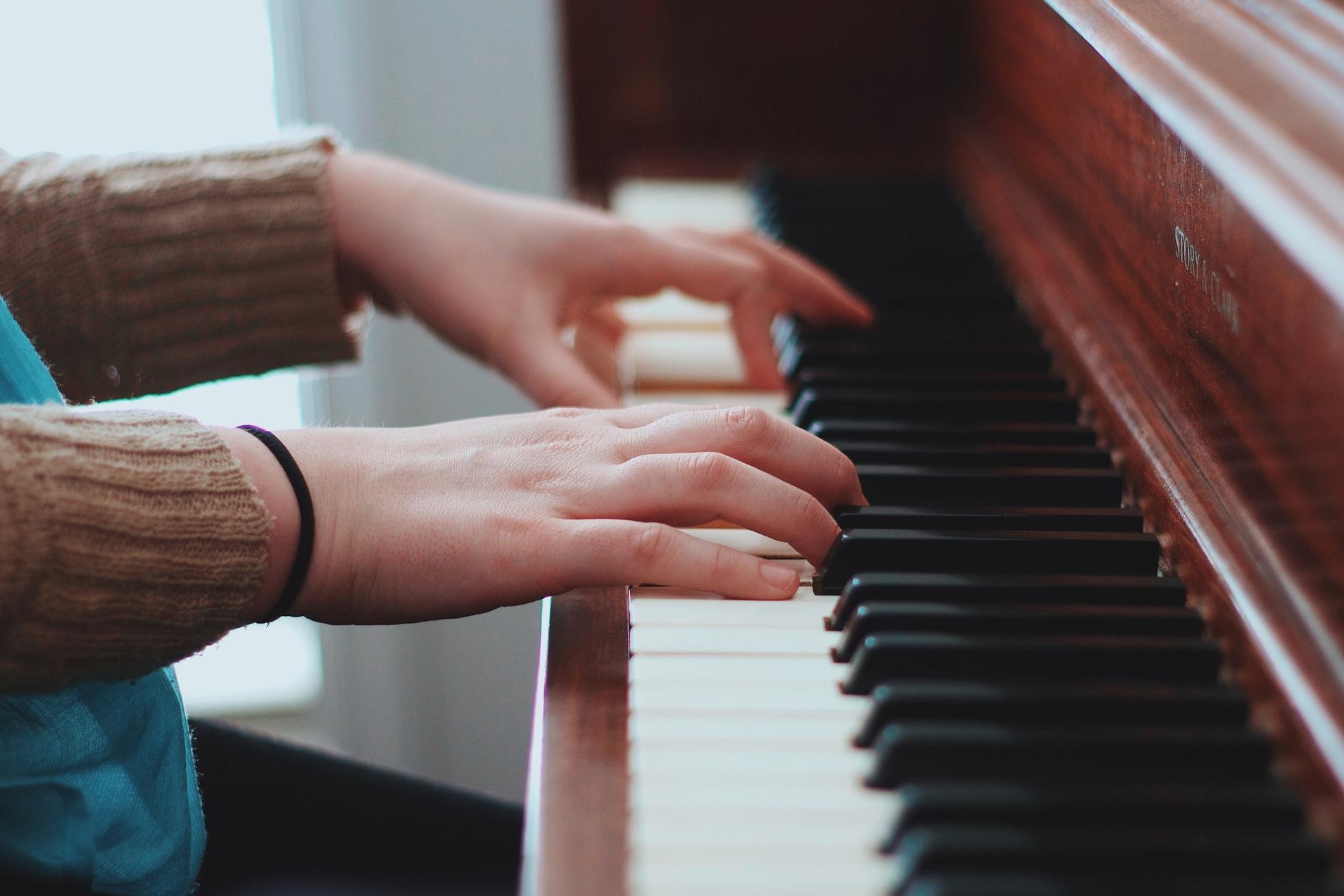
thirteen. Provides an "Unplugged" Outlet and Entertainment
Limiting electronics is something many parents and even adults need to be doing more than and more. The consequence of excessive fourth dimension spent on electronics is linked to increased encephalon atrophy, impaired cognitive functioning and fifty-fifty increased cravings due to impaired dopamine operation. Learning to play piano is an activeness for kids and adults alike to movement away from "screen time" and have an unplugged outlet for entertainment.
Source: Psychology Today
14. Allows for Kinesthetic and Tactile Learning
In 2013, an constitute in Barcelona, Spain, studied the effects of dissimilar kinesthetic learning environments and leisure activities. The study establish that participants who were assigned piano practice as opposed to others who did sports, painting, etc., showed greater neuro and psychological comeback on the scale they were using.
Source: Scientific discipline Nutshell
15. Changes Brain Construction and Mental Power
Many people define themselves as good or not skilful at music. You've heard people say before, "I'thousand not musical at all!" Gottfried Schlaug, director of the music and neuroimaging lab at Beth Israel Deaconess and Harvard Medical School in Boston, has confirmed through multiple studies that some people's brains are indeed better suited for learning music. However, all humans can benefit and even change the way their brain processes information and learns new skills past learning to play piano.
Source: The Guardian
At Lindeblad, nosotros have a rich history of piano players that contributed to the start of our family business. At Lindeblad Restoration, we continue that tradition today. Many of our employees are proficient pianists and savor the mental, physical and lifestyle benefits of playing the piano.
In the NJ area and interested in piano lessons? Accept a look at Lindeblad Schoolhouse of music!
Image Sources: Pexels & Unsplash
Source: https://www.lindebladpiano.com/blog/benefits-of-playing-piano
Postar um comentário for "What Does the Piano Playing"